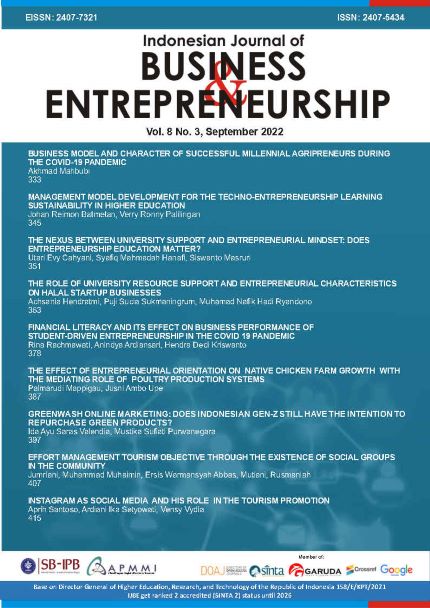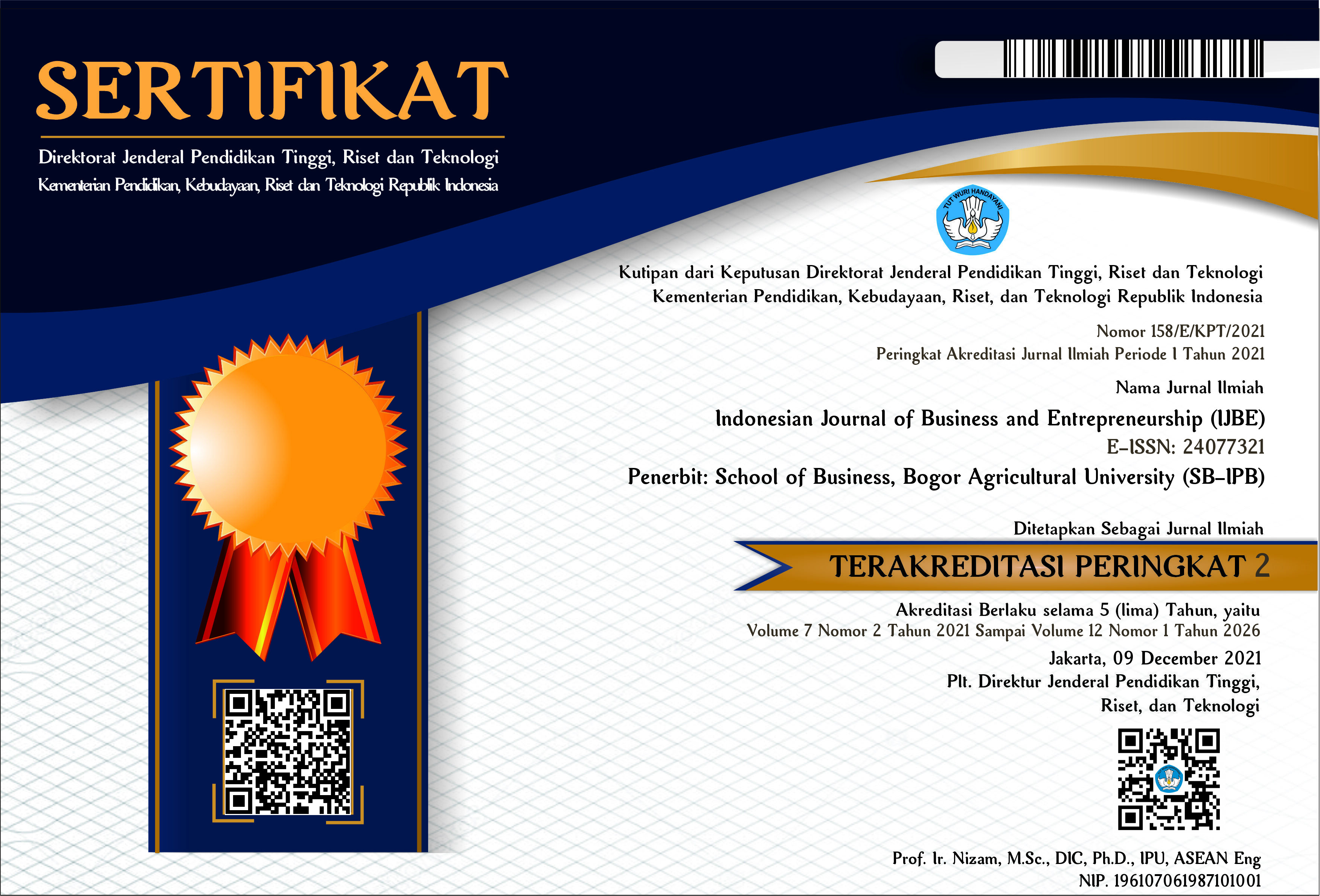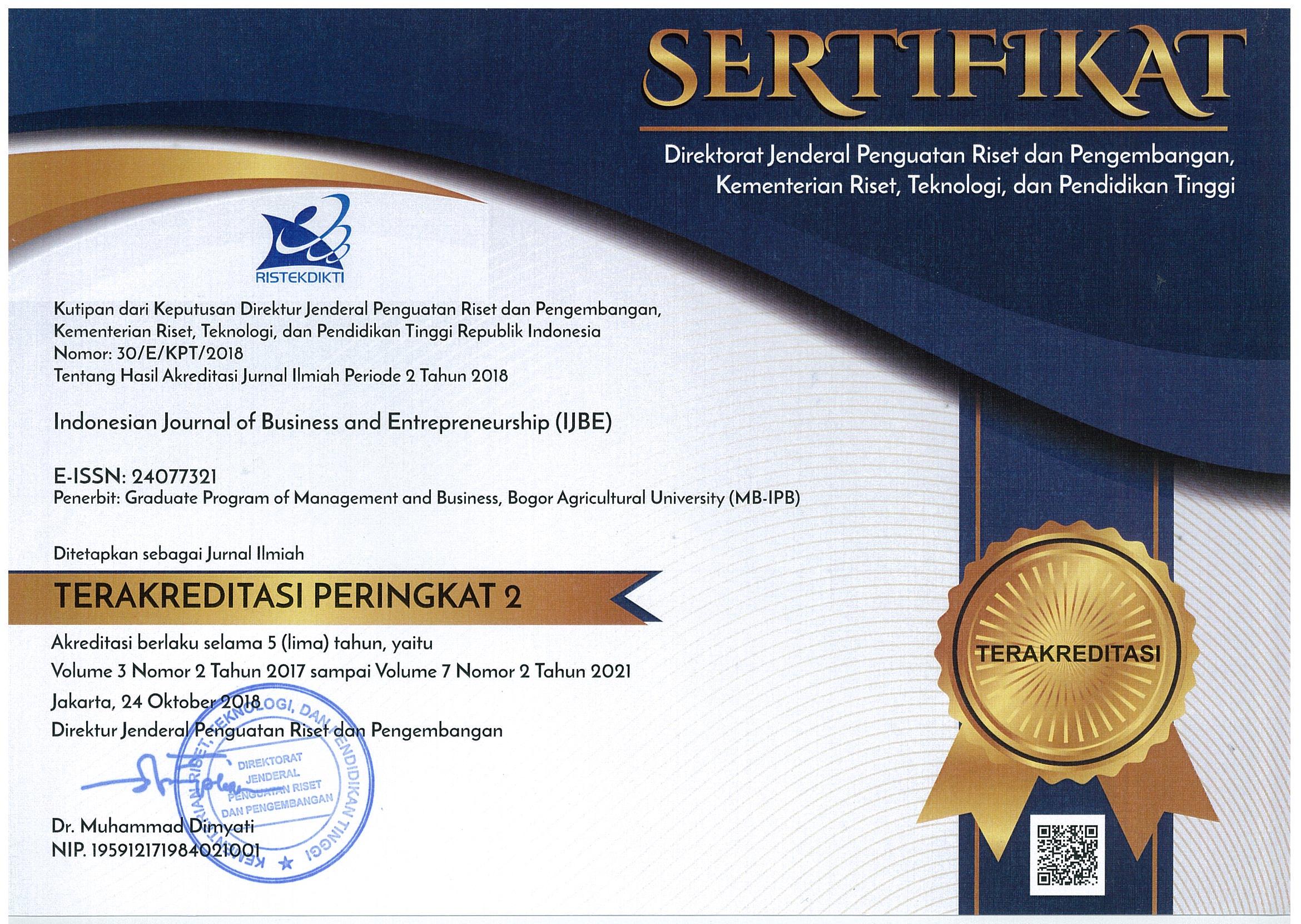Shopping Orientation and Trust in Online Stores Towards Impulse Buying
Abstract
This study aims to determine the effect of shopping orientation and online store trust on impulsive purchases among students of the Faculty of Tarbiyah and Teacher Sciences of University X in Samarinda. This research uses a quantitative approach. This study involved 100 students of the Faculty of Tarbiyah and Teacher Sciences of University X in Samarinda who were selected using a simple random sampling technique. The use of data collection methods is the scale of impulsive purchases, shopping orientation, and the trust of the online store. The collected data are analyzed with the help of SPSS 25.0 for Windows programs. The results showed that the major hypothesis was accepted, namely simultaneous shopping orientation and online store trust can predict the occurrence of impulsive purchases in students, as evidenced by a value of p = 0.000 (p<0.05). The predicted rate is 52.9%. The first minor hypothesis is accepted, namely shopping orientation is able to predict student implusive purchases, proven by a value of p = 0.000 (p<0.05), while the second minor hypothesis is accepted, namely trust in online stores able to predict student impulsiveimplusive purchases as evidenced by a value of p = 0.000 (p<0.05). The results showed that the major hypothesis was accepted, namely simultaneous shopping orientation and online store trusts can predict the occurrence of impulsiveimpulsive purchases in students, as evidenced by the value of p = 0.000 (p<0.05). The positive impact of this research when people specifically read this research article is that it can increase literacy about the main factors that cause impulsive purchases, especially among students, especially caused by shopping orientation and also caused by trust in online stores.
Keywords: impulsive buying, online store beliefs, shopping orientation








